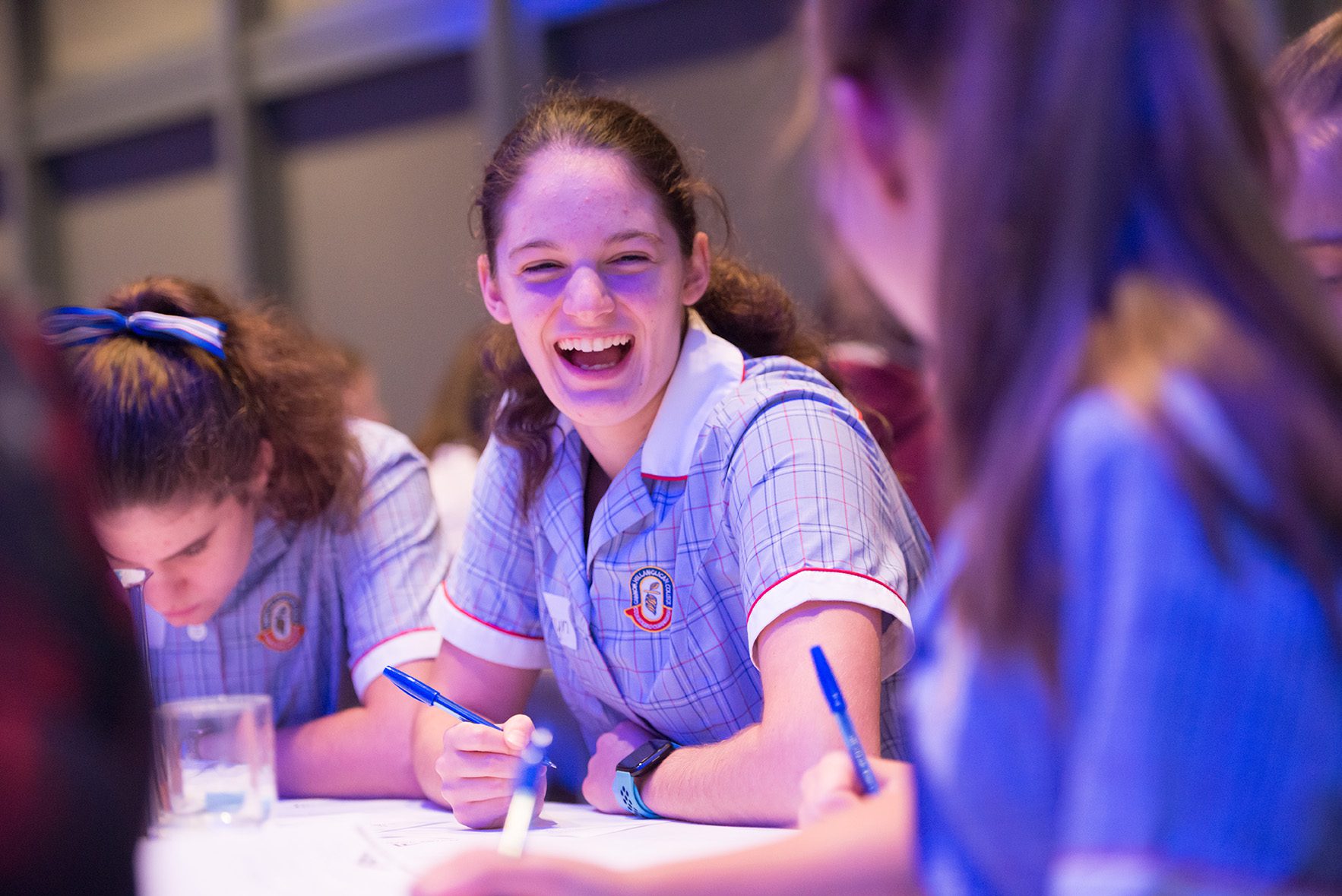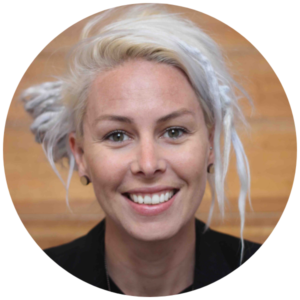
Why we’re no longer empowering youth entrepreneurship in schools.
by Nicole Dyson, Founder & CEO, Future Anything
Before alarm clocks, there were Knocker-Uppers. Using a short baton or a long and light bamboo stick to reach windows on higher floors, the Knocker-Upper would tap on windows and doors to rouse their sleeping clients so they could get to work on time.
Fun fact: Some even used pea shooters to launch projectiles at their clients’ windows.
Before electricity, there were Lamplighters. Walking the streets at dusk, this profession was employed to light and maintain candle or, later, gas street lights, generally by means of a wick on a long pole. At dawn, the lamplighter would return to the streets to put them out using a small hook on the same pole.
Before fridges, there were Ice-cutters. Risking their lives, and the lives of their horses, Ice-Cutters would venture out onto frozen rivers, lakes, or ponds in wintertime, score the surface of the ice, and then use a horse-powered device to cut blocks of ice free; selling these blocks to homes and businesses to keep their food cool.
Before Spotify there were Lectors. In the 1900s, factories would hire lectors to read aloud newspapers or books on-site to keep workers entertained. The lector would usually perform from an elevated surface so that the entire factory would be able to hear.

The future is already here.
Whilst the term ‘the future of work’ is bandied around, the reality is that the future is already here.
Each industrial revolution has been responsible for radically transforming the ‘future of work’ for generations to come.
Whilst the ‘fourth industrial revolution’ that we find ourselves in now is no different, the unprecedented and exponential rate of change caused by emerging technology breakthroughs (such as nanotechnology, quantum and cloud computing, the Internet of Things, 3D printing, and robotics) means that as many as 60% of young people today are studying or training for occupations that could be automated in the next decade (Foundation of Young Australians: The New Work Order, 2015).
And, there are some unlikely suspects on the at-risk occupation list.
With robot nurses and robot pharmacists already rolling out in Australia, the US, and the UK, occupations even in seemingly ‘safe’ industries may have a shorter shelf life than anticipated.
In fact, by 2025, the time spent on current tasks at work by humans and machines will be equal.
This has huge implications. The World Economic Forum estimates that by 2025, 85 million jobs may be displaced by a shift in the division of labour between humans and machines, while 97 million new roles may emerge that are more adapted to the new division of labour between humans, machines, and algorithms (read more here).
What will these roles of the future require?
A high degree of creativity and advanced cognitive reasoning.
The ability to be responsive to subjective inputs.
Social skills and interpersonal relationships.
Whatever you want to call these competencies, whether it’s ‘enterprise skills’ or ‘future capabilities’ or something else altogether, what we’re seeing is a transition from value being placed not on what people know, but on what they can do.
Show me the money.
Not only are employers looking for these skills, but they’re also willing to pay more.
FYA research shows that employers will pay an extra:
- $3,129.00 for jobs that require innovation/creativity
- $7,745.00 for jobs that require problem solving
- $8,648 for jobs that require digital literacy
- $8,853 for jobs that require presentation skills
That last one is a particularly powerful provocation for me. With devices commanding much of our young people’s time and attention, we have a generation of young people that are becoming more and more apprehensive of any form of ‘public’ speaking or presentation.

In a world where the rise of remote working means that you don’t need to live in the same postcode (or even the same country) as your potential new employer, a slick CV might get you in the door for an interview, but the ability to clearly and compellingly articulate who you are, and why you’re the best candidate (and cultural fit) for the organisation is what will get you the job.
Why we’re evolving beyond ‘entrepreneurship’.
So what does this all mean? For education in its widest sense, but more specifically for Future Anything and the work that we’ve led for the past five years.
Our programs, and particularly Activate (our award-winning, flagship in-curriculum program), have been synonymous with ‘entrepreneurship’ for many years.
In fact, ‘Empowering Youth Entrepreneurship in Schools’ is the tag line on our website.
But, if we look at the research, the world doesn’t need us to build a generation of entrepreneurs.
The future demands enterprising young people.
In this way, we don’t need every young person who comes out of our programs, or indeed education broadly to be an entrepreneur or start a business.
What we do need is a generation of young people who have an enterprising mindset; who, in other words, think like an entrepreneur.
Now, what do I mean by enterprising?
enterprising (adj)
en·ter·pris·ing | \ ˈen-tər-ˌprī-ziŋ , ˈen-tə-ˌprī- \
: marked by an independent energetic spirit and by readiness to act
Just imagine.
Imagine if we unleashed a generation of young people marked by an independent, energetic spirit and a readiness to act?
We’d have young people that are not just job seekers, but job creators.
We’d have young people who, when they see a problem in front of them, have the agency and confidence to do something about them.
So, we’re moving away from entrepreneurship.
Instead, we’re focussing our student workshops, our teacher professional development programs, and Activate on supporting educators, schools, and systems to build a generation of young people who are enterprising in the way that they approach learning and life.
Building Enterprising Classrooms
Now, how do we do this?
At Future Anything, we do this through our Enterprising Classrooms Framework.
This framework is the convergence of design thinking, entrepreneurial pedagogy, inquiry- and project-based learning, and the product of our experience of working with 50 000+ young people and thousands of brilliant educators over many years.
We start in the ASPIRATION phase. Here, we ask ourselves, ‘How can we imagine an ‘end’ that we (both students and teachers) can be excited about?” In this phase, we ‘breathe’ hope into the learning journey, artfully backward mapping from a cumulative task worthy of striving for.
Then, we move to AUTHENTICITY. Our challenge here is ‘How do we link our learning to life outside the school gates?’ We know authenticity is a powerful lever for student engagement. In this phase, we ‘look up’ from the whiteboard; purposefully engaging real-world people, places, and spaces (digitally or physically) into the learning experience; breaking down the barriers between education and industry.
Next, comes APPRECIATION. The critical question in this phase is ‘How do we use curriculum as a vehicle to give young people a greater understanding of who they are and the joyful possibility of their own potential?’ Rita Pierson famously said in her viral TEDTalk, “Kids don’t learn from people they don’t like.” Vital here is crafting a classroom culture that gives young people the space, safety, and sense of belonging they require to explore and appreciate these things in themselves, their peers, and their teachers.

From here, the critical next phase is to drive AGENCY. Here, we explore ‘How do we build student agency and autonomy so learning is truly student-led?’ Too often we save our young people instead of serving them. How can we explicitly teach the critical skills (project management, adaptive mindset, creativity and innovation, communication, problem-solving and critical literacy) required to navigate the future of work in a way where young people can, over time, take command of their own learning journey; our role as the teacher moving to that of a motivator, guide and facilitator of learning.
Our journey culminates with ACCOMPLISHMENT. This is the pivotal moment where we transform assessment into a celebration. The etymology here matters. We’re talking about more than just ‘achievement’. We’re talking about how we build that critical sense of accomplishment in our learning journey so that when our young people get to the end, through reflection, they’re able to feel – and articulate – a deep sense of personal (and potentially collective) accomplishment for what they’ve achieved. It’s important to note that accomplishment can’t be felt without agency. If we can’t own the accomplishment, we can’t celebrate it.
So that’s the Future Anything Enterprising Classrooms Framework, and it underpins why and how we’re no longer going to be empowering ‘youth entrepreneurship’ in schools.
Instead, in partnership with educators, we’ll build a generation of young people marked by an independent, energetic spirit and a readiness to act.
I’ll be writing more about each pillar of the Enterprising Classrooms Framework in the coming weeks, and we’ll be rolling this methodology out with the 200+ teachers in the 45+ schools participating in Activate this year.
But, it’s a work in progress, and will no doubt evolve with feedback from educators and young people.
I’d love to hear your thoughts.
What do you think are the foundations for building an enterprising classroom?
Future Anything offers a portfolio of student workshops, teacher professional development and in-curriculum project-based learning experiences that are building enterprising classrooms in Australia and beyond.
Find out more about our programs here.
Subscribe to Future Anything’s regular e-newsletter to have resources delivered right to your inbox. You can sign up here.
About the author: Nicole Dyson
As a teacher in the USA, UK and Australia as well as a Head of Department and Head of Year at some of Queensland’s top-performing public schools, Nicole has repeatedly led the design and implementation of whole-school changes to support future ready learning; building enterprising classrooms that place young people at the forefront of co-designing contextually relevant learning experiences.

Nicole is an engaging and skilled facilitator, panellist and speaker who is a passionate advocate for equity, the future of education, and empowering young people to bend the future; one youth-led idea at a time.
Connect with Nic on LinkedIn here or Twitter here.





